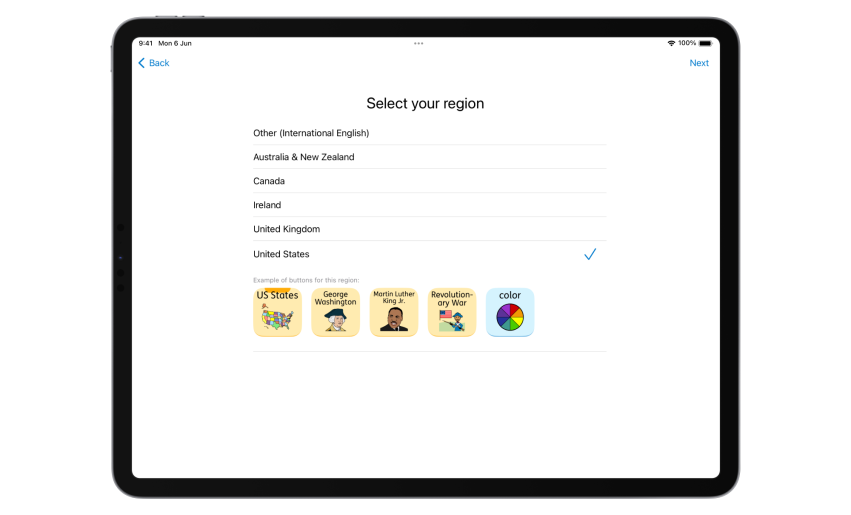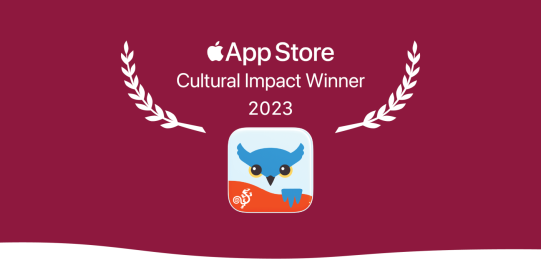You will choose your preferred regional vocabulary the first time you open Proloquo. Note that if you make an error you can later change the Region in Settings.
A cookie or a biscuit
Every version of Proloquo has buttons for the most common and essential words in the English language. Many more words are available as text-only Related Words™. Most of these words mean the same thing all over the world. We relied on various data sources to select these words.
But we also recognize that English is diverse.
Sometimes it’s just a matter of different spelling, such as color vs colour, or center vs centre. Proloquo’s Crescendo Evolution™ vocabulary offers the appropriate spellings for each region.
Some regions have different terms for the same thing, like cookie vs biscuit. You might prepare food on a counter in North America, a bench in Australia, and a worktop in the UK. Proloquo reflects this difference as well
Sometimes, we use the same word but in different ways. Squash is a drink and a vegetable in England but only a vegetable in Canada.
Building an AAC vocabulary
How did we do this? First, we consulted research-based word lists to identify regional differences in spelling and meaning. Next, we reviewed anonymous data from thousands of Proloquo2Go and Proloquo4Text users. This data confirmed patterns, such as how often Americans say awesome while Brits say brilliant.
Next, we recruited families in Australia, England, Scotland, Ireland, Canada, and the US. They reviewed the symbols and words to ensure they all meant the same thing. We learned that families in every region talk about football, but the sport could be soccer, gridiron, rugby, Australian footy, or Gaelic football!






